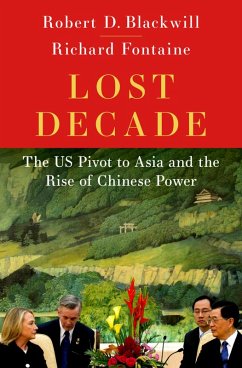Lost Decade is an essential guide for understanding the historic shift to Asia-centric geopolitics and its implications for America's present and future. Across the political spectrum, there is wide agreement that Asia should stand at the center of US foreign policy. But this worldview, first represented in the Obama Administration's 2011 "Pivot to Asia," marks a dramatic departure from the entire history of American grand strategy. More than a decade on, we now have the perspective to evaluate it in depth. In Lost Decade, Robert Blackwill and Richard Fontaine?two eminent figures in American foreign policy?take this long view. They conclude that while the Pivot's strategic logic is strong, there are few successes to speak of, and that we need a far more coherent approach to the Indo-Pacific region. They examine the Pivot through various lenses: situating it historically in the context of America's global foreign policy, revealing the inside story of how it came about, assessing the effort thus far, identifying the ramifications in other regions (namely Europe and the Middle East), and proposing a path forward. The authors stress that the US has far less margin for foreign policy error today than a decade ago. As the international order becomes more unstable, Blackwill and Fontaine argue that it is imperative that policymakers fully understand what the Pivot to Asia aimed to achieve?and where it fell short?in order to muster the resources, alliances, and resolve to preserve an open order in Asia and the world. Crafting an effective policy for the region, they contend, is crucial for preserving American security, prosperity, and democratic values.
Dieser Download kann aus rechtlichen Gründen nur mit Rechnungsadresse in A, B, BG, CY, CZ, D, DK, EW, E, FIN, F, GR, HR, H, IRL, I, LT, L, LR, M, NL, PL, P, R, S, SLO, SK ausgeliefert werden.









